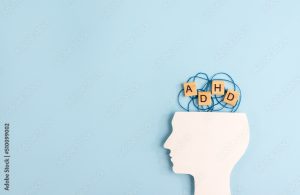Decoding medications can be a daunting task for both individuals diagnosed with ADHD and their caregivers. With the wide array of medications available on the market, it is important to have a clear understanding of the different types of medications, their effects, and factors to consider when choosing the right medication. In this article, we will delve into the world of medications to help you make informed decisions about managing ADHD symptoms effectively.
Understanding ADHD Medications
ADHD medications are commonly prescribed to individuals with Attention Deficit Hyperactivity Disorder (ADHD) to help manage symptoms such as impulsivity, hyperactivity, and inattention. These medications work by altering the levels of certain neurotransmitters in the brain, such as dopamine and norepinephrine, to improve focus, attention, and impulse control. It is important to note that medications do not cure ADHD, but they can help alleviate symptoms and improve daily functioning.
There are primarily two categories of medications: stimulants and non-stimulants. Stimulant medications are the most commonly prescribed and are generally considered the first line of treatment for ADHD. Non-stimulant medications are typically prescribed when stimulants are not effective or are not well-tolerated by the individual. Understanding the differences between these two categories of medications is crucial in decoding ADHD medications effectively.
Types of ADHD Medications
Stimulant medications, such as methylphenidate (Ritalin) and amphetamine-based medications (Adderall), work by increasing the levels of dopamine and norepinephrine in the brain. These medications have been shown to be highly effective in managing ADHD symptoms in many individuals. However, it is important to note that stimulant medications can have potential side effects, such as decreased appetite, trouble sleeping, and increased heart rate.
Non-stimulant medications, such as atomoxetine (Strattera) and guanfacine (Intuniv), work by targeting different neurotransmitters in the brain to improve ADHD symptoms. These medications are often prescribed when stimulants are not effective or are not well-tolerated by the individual. Non-stimulant medications may have fewer side effects compared to stimulants, but they may take longer to show noticeable improvements in symptoms.
In addition to stimulant and non-stimulant medications, there are also other medications that may be prescribed to individuals with ADHD, such as antidepressants or antihypertensive medications. These medications are typically used when ADHD symptoms coexist with other mental health conditions, such as depression or anxiety. It is important to work closely with a healthcare provider to determine the most appropriate medication for each individual based on their specific needs and circumstances.
Factors to Consider When Decoding ADHD Medications
When decoding ADHD medications, it is important to consider several factors to ensure that the chosen medication is safe and effective for the individual. These factors include the individual’s age, medical history, coexisting conditions, and potential side effects. It is essential to work closely with a healthcare provider to discuss these factors and determine the most appropriate medication and dosage for the individual.
Another important factor to consider when decoding medications is the individual’s response to the medication. It is important to monitor the individual’s symptoms and side effects regularly to determine if the medication is having the desired effect. Adjustments to the dosage or type of medication may be necessary based on the individual’s response and tolerance to the medication.
It is also important to consider the individual’s lifestyle and daily routine when decoding medications. Some medications may need to be taken at specific times of the day or with food to optimize their effectiveness. It is important to work with a healthcare provider to create a medication schedule that is manageable and conducive to the individual’s daily routine.
In conclusion, decoding medications requires a thorough understanding of the different types of medications, their effects, and factors to consider when choosing the right medication. By working closely with a healthcare provider and monitoring the individual’s response to the medication, individuals with ADHD can effectively manage their symptoms and improve their quality of life.
By taking a proactive approach to decoding medications, individuals with ADHD can find the most suitable treatment plan that works best for them. It is important to prioritize safety, effectiveness, and individual needs when exploring medication options for ADHD. With the right support and guidance from healthcare providers, individuals with ADHD can navigate the world of ADHD medications with confidence and empower themselves to achieve better symptom management and overall well-being.




